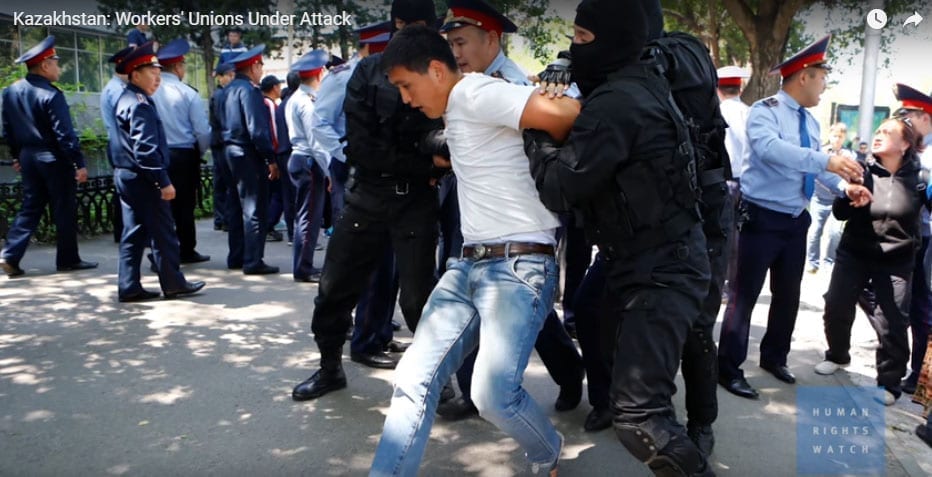
Aug 6, 2018
Human rights activists around the world celebrated the recent release from prison of two union leaders in Kazakhstan who were convicted of bogus criminal charges after participating in a peaceful workers’ protest against the forced closure of the country’s main independent union group, the Confederation of Independent Trade Unions of Kazakhstan (CITUK/KNPRK).
Yet the convictions of Amin Yeleusinov, Nurbek Kushakbayev and 30 other workers who took part in the rally have not been overturned, and trade union freedom there has been curtailed.
The anti-worker environment in Kazakhstan is not unique. Around the world, a pattern of attacks against freedom of assembly and collective bargaining is increasing even in countries with strong democracies within a broader clampdown on human rights and restrictions on civic space.
“Democratic organizing of workers is suppressed and all the democratic spaces to organize are shrinking. Thus, workers are unable to bargain collectively for their fair and just share and to sustain the present unjust economic order,” says Sanjiv Pandita, regional representative for Solidar Suisse in an email.
Worker rights often are the most frequently violated.
“In my opinion this is the biggest crisis of democracy we are facing.”
Murder, Death Threats and Repression
Broadly, more than 3.2 billion people live in countries in which “civic space” is either closed or repressed. Few countries—16 of 134 countries with verified data—are genuinely open, according to CIVICUS, a global civil society alliance that includes the Solidarity Center. One recent study concluded that since the end of 2017, one-third of the world’s population—2.5 billion people—have lived through “autocratization,” in which a leader or group of leaders began to limit democratic attributes and to rule more unilaterally.
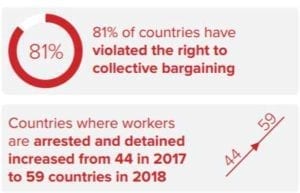
Credit: ITUC
Within this global crackdown on human rights, worker rights often are the most frequently violated. In most countries, unions provide the largest civil space for exercising fundamental human rights freedoms and building democratic societies.
The Global Rights Index 2018 compiled by the International Trade Union Confederation (ITUC) points to increased restrictions on the right to form unions: 65 percent of countries now exclude some workers from the right to establish or join a trade union, an increase from 60 percent in 2017.
The report finds the number of countries where workers were arrested and detained increased from 44 in 2016 to 59 in 2017. Last year, trade unionists were murdered in nine countries: Brazil, China, Colombia, Guatemala, Guinea, Mexico, Niger, Nigeria and Tanzania.
In 2017 alone, instances of repression or attacks against workers seeking to form unions, bargain collectively or rally for their rights ranged from harassment to murder.
Laws Protecting Worker Rights Not Followed
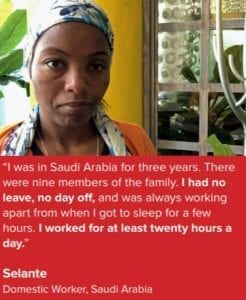
Saudi Arabia is among countries that bars migrant workers from forming or joining unions. Credit: ITUC
A 2016 report on rights to freedom of assembly and association in the workplace by a United Nations special rapporteur found that “unconstrained power, whether public or private in origin, is a critical threat to the protection of human rights, including workers’ rights to freedom of peaceful assembly and of association.”
The report detailed the many mechanisms by which worker rights are curtailed, including outright bans on all legitimate unions, such as those in Saudi Arabia and the United Arab Emirates. Countries also use laws to repress trade union and civil society freedom of association rights such as in Brazil, which passed laws that denied workers freedom of association, restricted free speech and used the military to suppress labor disputes.
Laws that restrict bargaining topics, including wages, hamper assembly and association rights because workers are more reluctant to risk organizing when potential gains are so few, the report says. Even in countries where the right to strike is not legally prohibited, governments attempt to justify restrictions by citing the need for public security, the threat of terrorism, national interest or economic crisis.
“Both trade unions and the right to strike are fundamental tools to achieving workers’ rights, as they provide mechanisms through which workers can stand up for their interests collectively, and engage with big business and government on a more equal footing,” according to the report. “The state is obligated to protect these rights for all workers.”
Many countries have ratified International Labor Organization (ILO) conventions that protect the freedom to form unions, strike and bargain collectively, and the notion that states create conditions that allow trade unionism among workers is implicit in the UN International Covenant on Economic, Social and Cultural Rights. Yet these international regulations and national laws with similar protections often are not followed.
Economic Inequality Parallels Shrinking Civic Space for Workers
Shrinking civic space for workers and their unions parallels a meteoric rise in global economic inequality. Seven out of 10 people live in a country where inequality is growing fast. The growing ranks of millionaires and billionaires now hold nearly half of global personal wealth, up from slightly less than 45 percent in 2012, according to a new report.
The concentration of wealth and power can combine to limit average citizens’ influence on politics and policy. Economic inequality and civic space are intricately connected. Tunisians still chant—and seek—“Bread, freedom, and social justice,” the slogan coined during the 2011 Arab uprising in which hundreds of thousands of people in countries throughout the region demanded economic justice and democratic freedom.
“The world has never been so unequal any time in modern history, and workers organizations and collective bargaining are the democratic control on capital that is being crushed systematically to maintain this order,” says Pandita.
Strengthening Workers’ Voice Strengthens Democracy

Tunisian workers and their unions were key to the country’s democratization. Credit: Solidarity Center/Tula Connell
Studies show that unequal economies reinforce distrust in government and threaten democracy. Addressing economic inequality means ensuring worker rights are strengthened. And strong worker rights are the underpinning to vibrant democracy.
“The freedoms of speech, assembly and association are the essence of any democracy,” says Barbara Unmüßig, president of the Heinrich Böll Foundation. “Their restriction poses a challenge to democratic governments and global cooperation.
“This issue must become part of foreign and development policy as well as human rights discussions, taken up by national parliaments and integrated globally into intergovernmental discussions and negotiations,” says Unmüßig.
As the report to the UN on freedom of assembly and association asserts: “Labor rights are human rights, and the ability to exercise those rights in the workplace is a prerequisite for workers to enjoy a broad range of other rights, whether economic, social, cultural, political or otherwise.”
“Democracy and human rights, like freedom of association, create equality in front of power, even the playing field and unleash the innovation of citizens that governments need to govern well,” says Solidarity Center Executive Director Shawna Bader-Blau.
Freedom of assembly, association, and speech are anchored in the 1948 Universal Declaration of Human Rights, and long established in international law and many national constitutions. By working to ensure workers have the freedom to exercise their rights, unions and the workers they represent, accompanied by human rights champions around the world, are the strongest and most effective solutions to the ongoing crisis of closing space choking democracies worldwide.
“In the past 50 years, so many major transitions to democracy have had social movements front and center,” says Bader-Blau.
“South African unions helped end apartheid. And for the role they played in transforming Tunisia, the labor movement there won the Nobel prize. Freedom of association is what revives and builds democracies, and gives us all a chance to promote economic and political rights simultaneously.”
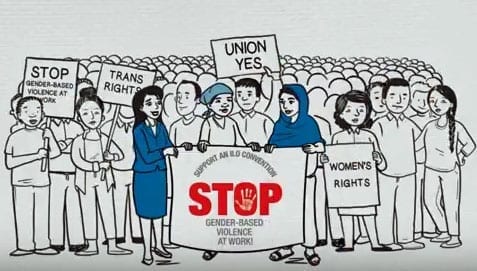
Jul 3, 2018
A global regulation addressing gender-based violence at work is one step closer to reality following a 10-day meeting of workers, their unions and representatives from business and government—but much work must yet be done to ensure its passage.
Participants at the recent International Labor Organization (ILO) conference in Geneva, Switzerland, reached consensus on the need for a convention and recommendation to provide guidance to member states, employers and unions in implementing a global standard to end violence and harassment at work. ILO conventions are legally binding international treaties that may be ratified by member states, and recommendations serve as non-binding guidelines.
Momentum for an ILO convention covering gender-based violence at work follows years of advocacy by the global union movement, an effort led by the International Trade Union Confederation (ITUC).
Leading up to the most recent negotiations, Solidarity Center partners urged their unions, governments and employers to publicly support a binding ILO convention on violence and harassment at work that includes gender-based violence. Their efforts clearly moved countries such as the governments of Tunisia and Cambodia, which both indicated strong support.
With Solidarity Center support, more than a dozen workers—from Brazil, Cambodia, The Gambia, Guatemala, Honduras, Indonesia, Kenya, Mexico, Morocco, Nigeria, Palestine, South Africa, Swaziland, Tunisia and Zimbabwe—participated in the conference. Several took lead roles in the negotiations as part of the workers’ group, including sisters from Kenya and Zimbabwe who ensured gender-based violence remained the focus of discussions.
Violence and Harassment at Work Violates Basic Human Rights
The discussion included defining violence and harassment and assessing whether the final outcome should be a binding convention and a recommendation or only a recommendation.
Marie Clarke Walker, secretary-treasurer of the Canadian Labour Congress, represented the workers’ group. In committee negotiations among workers, employers and government representatives, Walker stated that violence and harassment at work constitutes a serious human rights violation, one that is incompatible with decent work, and one that impinges on the ability to exercise other fundamental labor rights.
Violence and harassment at work affect all occupations and sectors of the economy, including formal and informal work settings, Clark said. She also linked the importance of the negotiations to the current moment, including the #Metoo movement which has demonstrated the prevalence of violence and harassment at work and how it is both tolerated and endured, including by an especially high percentage of women seeking to obtain or maintain employment.
Walker also noted that while violence and harassment affects everyone at work, not everyone is affected in the same way nor on the same scale. Specifically, women and gender nonconforming people experience violence and harassment in disproportionate numbers, underlying the need for the gender dimensions of violence and harassment to be addressed in the instruments.
Countries Confirm Support for GBV at Work Convention
Representatives of several country members, including the European Union and its member states, confirmed their support for development of an effective ILO convention and emphasized that it must promote a gender-responsive approach, focus on prevention and enforcement measures, and improve protections for victims from intimidation and further assault.
The governments of African countries and Mexico also expressed support for a convention and recommendation. Speaking on behalf of the Africa group, the government of Uganda said a convention would leave no doubt about the international community’s commitment to influence domestic legislation.
Mexico’s representative observed that while both women and men were subject to harassment in the workplace, women were experiencing a higher vulnerability due to unfavorable labor market conditions. Further, international legal instruments should seek a general empowerment of women in the workplace, including with regard to sustainable development.
Employers do not want to see violence and harassment in the workplace, said Alana Matheson, the employer’s representative and deputy director of Workplace Relations at the Australian Chamber of Commerce and Industry. Matheson noted that everyone has responsibilities for preventing violence and harassment as well as a right to work in an environment free from violence and harassment.
With the ILO’s final negotiations set for June 2019, workers, unions and our allies will be looking to build on the successes of this year’s committee meeting and negotiations to ensure the strong support by employers, member countries and workers for the need to prevent and address violence and harassment at work results in an inclusive convention and recommendation.
The final convention and recommendation must include a broad definition of violence and harassment, one that includes gender-based violence and an inclusive definition of worker and work where employers, member states and unions share obligations and responsibilities to prevent and address violence and harassment.
Robin Runge, Solidarity Center senior gender specialist, participated in the ILO conference.
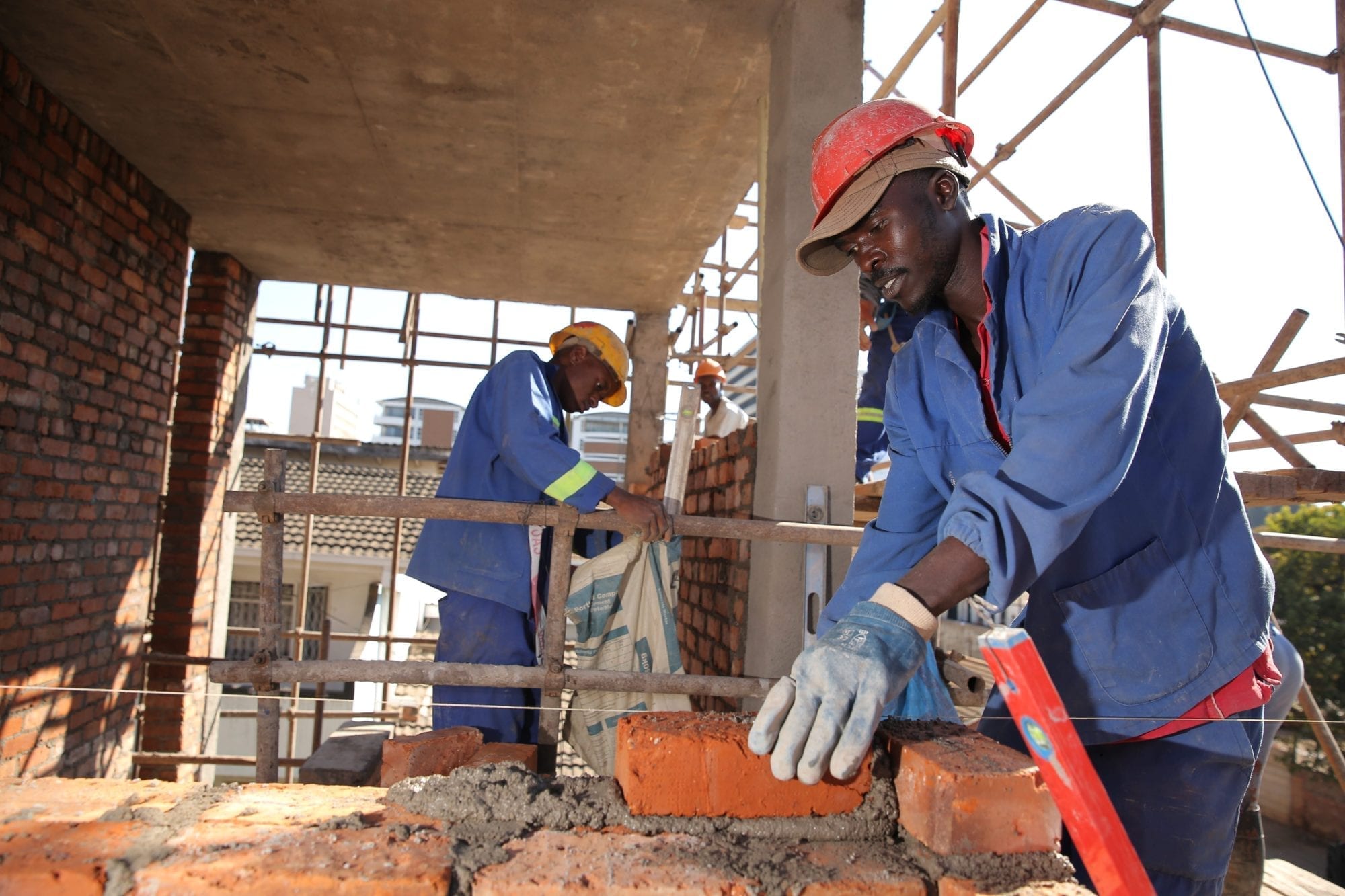
Jun 21, 2018
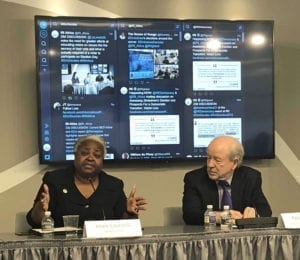
Solidarity Center Africa Regional Program Director Imani-Countess and NDI’s Patrick Merloe discussed challenges to democratic transition in Zimbabwe. Credit: Solidarity Center/Shayna Greene
Wage theft and other forms of economic injustice are among the major factors holding Zimbabwe back from a democratic transition, says Imani Countess, Africa regional program director for the Solidarity Center.
Countess spoke at a recent panel discussion in Washington, D.C., “Assessing Zimbabwe’s Election and Prospects for a Democratic Transition,” organized by the National Endowment for Democracy (NED). Bringing a labor perspective to the event, Countess described the strong correlation between increased participation in unions and the formation of other democratic institutions.
“There’s absolutely a link between democratic structures, the nature of unions and the role they play in the workplace, and in the nation and the fostering of broader democratic participation, particularly in elections,” says Countess.
Undemocratic practices flourish when workers are trapped in a cycle of economic inequality. Countess gave the example of 200 Zimbabwean women who experienced this type pf hardship firsthand after their husbands had not been paid for five years by the Hwange Colliery Co. Ltd. (HCCL). The company is one of the biggest in Zimbabwe, with the government as its largest shareholder.
Despite exporting to 13 nations including South Africa and China, HCCL owed its workers $70 million in unpaid wages. Often, companies will try to look attractive to foreign investors with competitive prices by engaging in forced labor and wage theft, Countess says.
Company’s Wage Theft Forced Families Turned to Informal Economy
The wives of the HCCL workers first protested in 2013 and were attacked by police. When they began protests again in 2018, they were joined by the Center for Natural Resource Governance, the National Mine Workers Union of Zimbabwe (NMWUZ) and the Zimbabwe Congress of Trade Unions.
Although the mine workers are not union members, Zimbabwe unions stood by the women because they were “the wives of workers,” says Countess. “So the National Union of Mine Workers was there.”
To help feed their families, the women took on informal jobs such as selling in markets and cross-border trading. About 94 percent of Zimbabweans work in the informal economy. Of the 6 percent working permanent jobs, one-third are exposed to wage theft, especially in the extractive sector, says Countess.
“For five years, these women subsidized the Hwange Colliery Co. by supporting their husbands’ ability to work without pay,” she says.
Civil society groups helped mobilize the women in their campaign through workshops on nonviolent strategies for resistance and other skills-building strategies, and opportunities to exchange experiences with women in other mining communities.
Finally, demands were met, ensuring that the women’s husbands were paid and not retaliated against for the actions of their wives.
This is only one example of how unions promote democracy in Zimbabwe despite the country’s challenges, says Countess. Though Zimbabwe is a militarized state with an unenforced constitution, union members are active in community organizations and serve in national election observation groups. For instance, in 2013, unions came together representing 15 countries in the Southern Africa Trade Union Coordination Council (SATUCC) region to participate in an observation mission in Zimbabwe.
“Mass-based organizations working together with communities can be powerful actors of change,” says Countess.
Also on the panel were Patrick Merloe, senior associate and director for Electoral Programs at the National Democratic Institute, and Elizabeth Lewis, deputy director for Africa at the International Republican Institute.
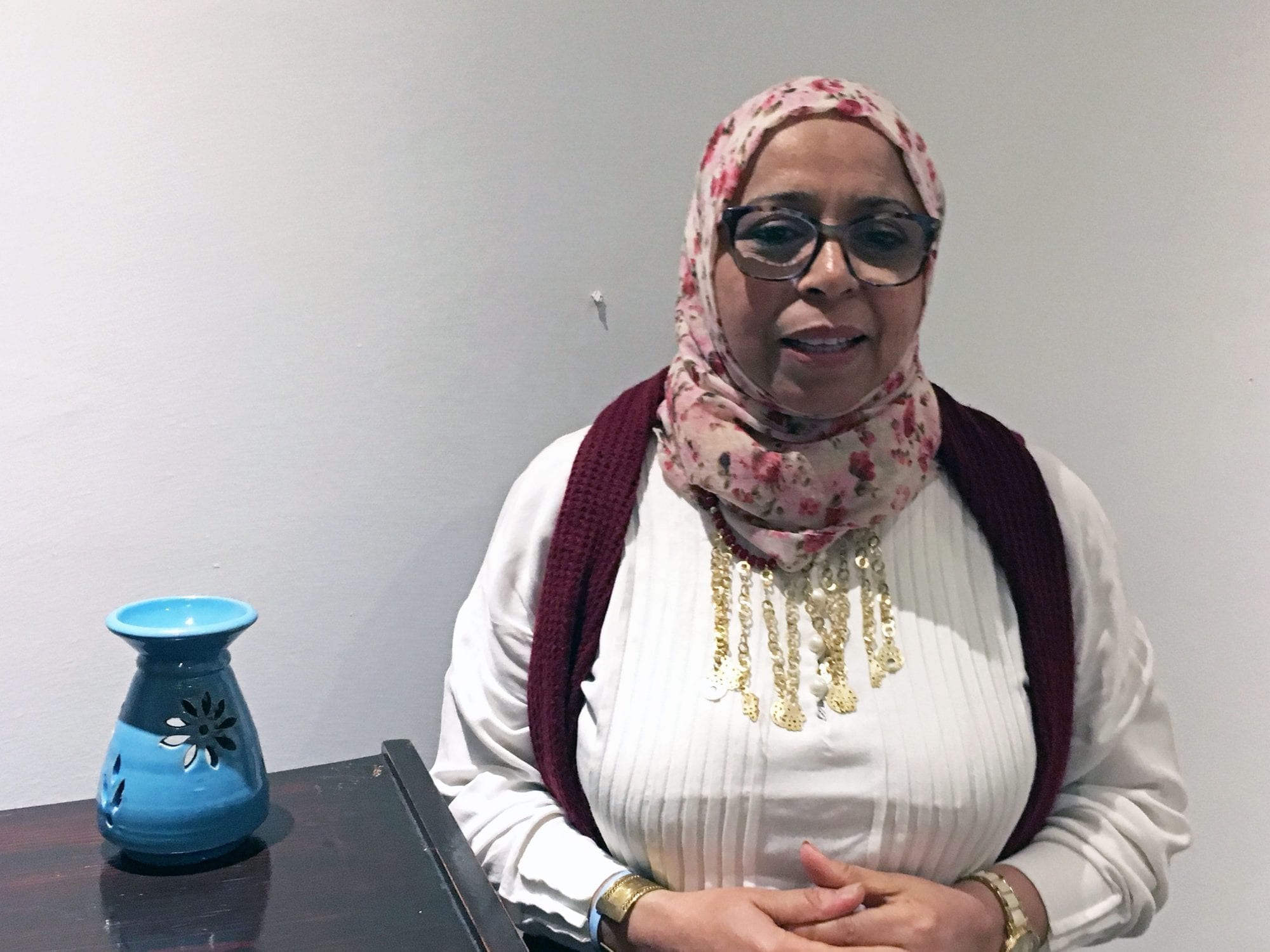
Jun 1, 2018
In Tunisia’s southern Gafsa region, Naziha Kdimi, a higher education teacher, struggled for years to gain acceptance among her male union peers.
This year, Kdimi was elected assistant general secretary for a regional union body covering the area for the General Union of Tunisian Workers (UGTT)—the first woman to hold an executive position in the region.
In this video clip, Kdimi encourages union women everywhere to never give up the struggle for gender equality.
Her advice to women seeking to change male-dominated cultures that have long inhibited women from exerting leadership: Keep showing up every day. Eventually, the men will accept you. Don’t go away, because then they will have won.
The video featuring Kdimi is part of the Solidarity Center Workers Equality Forum, where working people around the world describe their challenges, successes, and hopes and dreams for a better world for all workers.
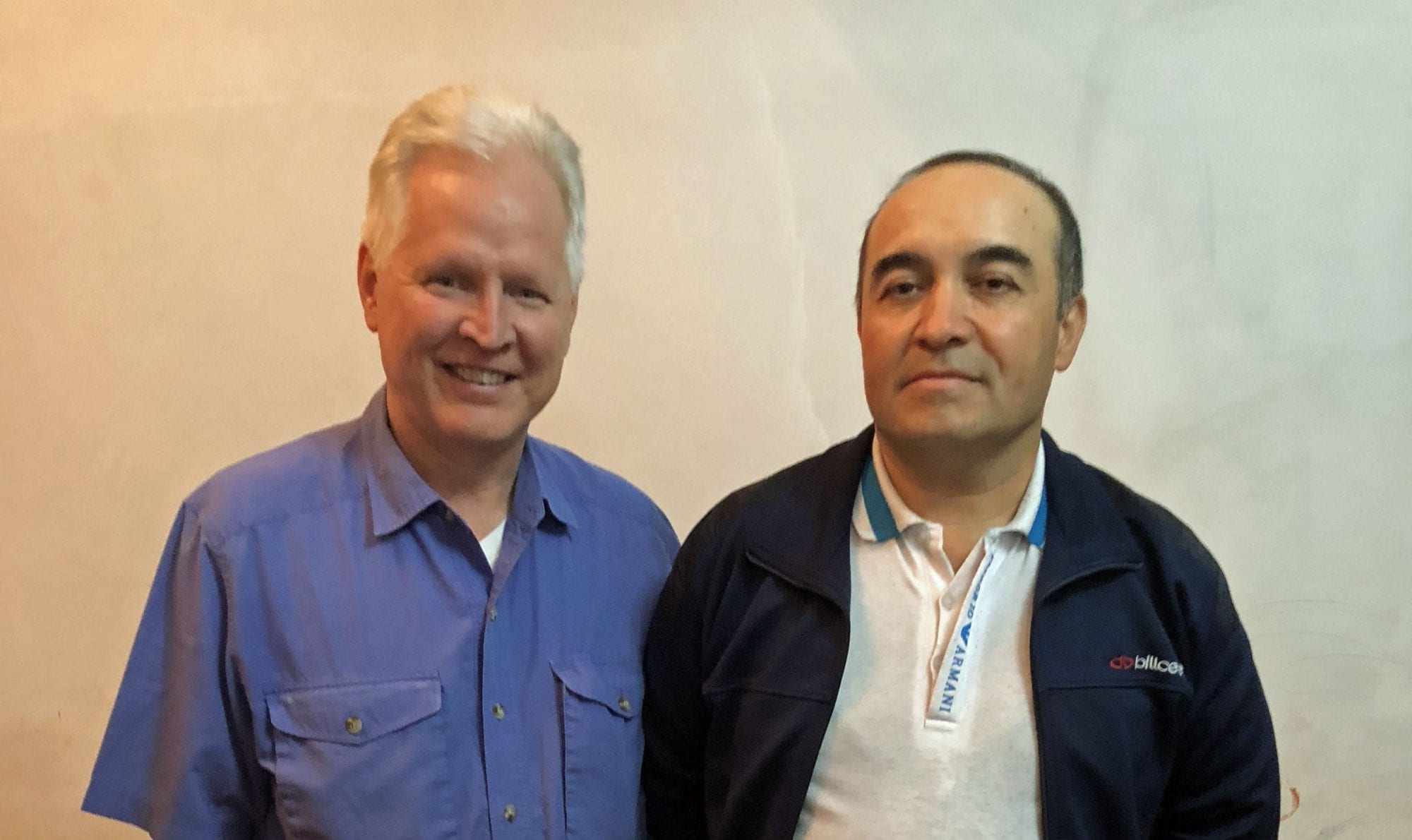
May 15, 2018
Uzbek union activist Fakhriddin Tillayev, in prison on a 10-year sentence and subjected to torture for attempting to organize an independent union for day laborers, was released over the weekend.
Tillayev’s release was among the results sought by a Cotton Campaign delegation, now in Tashkent, Uzbekistan’s capital, for unprecedented meetings with government officials, civil society advocates and human rights monitors to discuss the eradication of forced labor. During last fall’s harvest, the Uzbek government forced 336,000 people—including teachers, doctors and students—to work in the country’s cotton fields, picking a crop that generates nearly a quarter of the nation’s GDP, according to an International Labor Organization (ILO) survey. The Cotton Campaign believes the number of those forced to labor is higher.
Tillayev’s release “is a very positive step by the government,” says Solidarity Center Europe and Central Asia Regional Program Director Rudy Porter, who met with Tillayev after his release. Human Rights Watch, the Uzbek-German Forum for Human Rights, Cotton Campaign staff and the Solidarity Center all followed Tillayev’s case closely since his sentencing in 2014 and raised demands for his release in each meeting with the government.
Tillayev and his fellow activist, Nuriddin Jumaniyazov, were falsely accused of human trafficking, tortured and convicted in proceedings that violated fair trial standards. Jumaniyazov, who was sentenced to six years on the same charges as Tillayev, died in prison of complications related to diabetes in December 2016, information that was not made public until June 2017.
Tillayev said he and Jumaniyazov were arrested after they collected membership applications for an independent union from many people looking for day labor at eight markets in Tashkent.
“They had no other work, they needed protection, they needed their own union. The Administrative Court fined each of us 7 million Soum [$875] because we organized an independent union. They banned the independent union. And then they came up with a criminal offense to put us away for good.”
Seeking a Formal Plan to Dismantle State-Sponsored Forced Labor
Cotton Campaign coalition representatives are in Uzbekistan seeking legal and policy reforms to end the mobilization of education and healthcare workers to harvest cotton. They also are calling for an to end the practice of forcing those who refuse to go to the fields to pay for replacement workers.
The delegation seeks a formal plan to dismantle the forced labor system, and an accountability mechanism that allows for secure complaints and legal actions against officials who mobilize citizens. The Cotton Campaign delegation does not include forced labor monitors and will not assess Uzbekistan’s progress toward eliminating forced and child labor in cotton production.
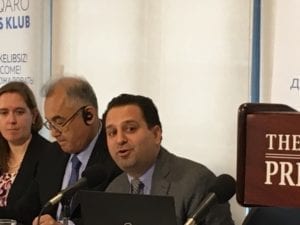
Steve Swerdlow from Human Rights Watch says “one of the biggest developments in Uzbekistan has been the release of political prisoners.” Credit: Solidarity Center/Tula Connell
The Cotton Campaign sees these meetings as among “recent encouraging signs that the Uzbek government is willing to talk about the subject of forced labor.” Last week, the government released journalists imprisoned on political grounds.
Noting that Uzbekistan has released 28 political prisoners in the past 20 months, Steve Swerdlow, Human Rights Watch Central Asia researcher, says “one of the biggest developments in Uzbekistan has been the release of political prisoners.” Swerdlow spoke May 14 as part of an Uzbekistan-sponsored press conference in Washington, D.C., to discuss its progress on human rights and prospects for improvement.
Uzbek President Shavkat Mirziyoyev acknowledged forced labor in cotton production in a speech at the United Nations in September, the first time a high-ranking Uzbek government official had done so in a public forum. Mirziyoyev again repudiated forced labor in April when he referenced teachers being mobilized for street cleaning and other “public works.” With its partners in the Cotton Campaign, the Solidarity Center advocates for the complete eradication of forced labor and forced child labor in Uzbekistan.










